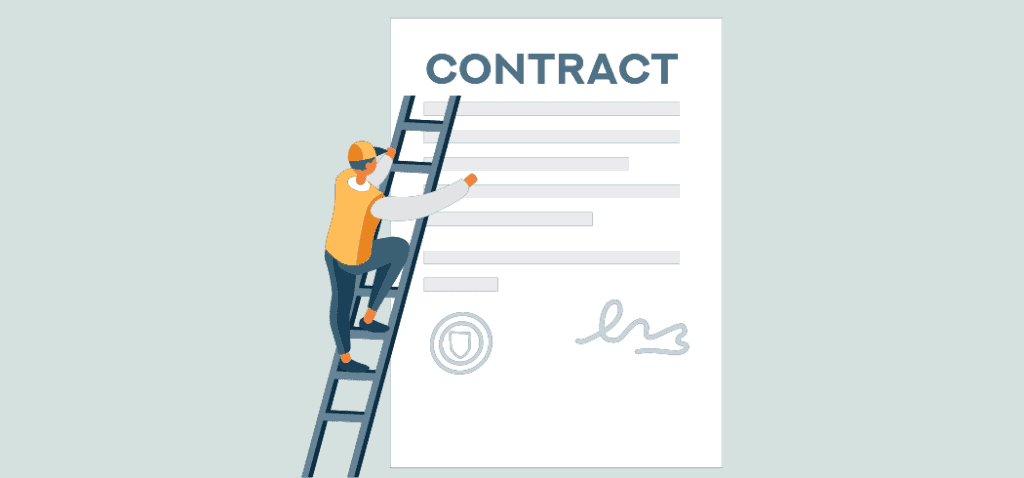Everyone starts as a beginner in their job; the same goes for the proofreading industry. And the best first step to have a leg up on the competition is obtaining a certification.
Many organizations offer online courses and tests to get you certified, but not all of them are accredited. But there are plenty of ways to gain credentials as a full-time proofreader.
Keep reading to learn how to get a proofreading certification. These tips will increase your credibility and opportunities in the industry.
What is a Certified Proofreader?

A certified proofreader isn’t an official title for proofreaders with professional certification. That’s because there is no such thing in most parts of the world. Only Editors Canada from Canada offers an official proofreading certificate after you pass a rigorous proofreading assessment.
Many people use the term “certified proofreader” to refer to proofreaders with certificates from training in popular proofreading courses. These certificates may come from online courses like Caitlyn Pyle of Proofread Anywhere’s General Proofreading Course.
Note that these online courses are not certification programs. They are simply training programs that offer certificates upon completion.
If you are from Canada, you have the chance to be a genuine, certified proofreader. Editors Canada was established in 1979 that deems professional editing vital for communication and for those planning to build a profitable freelance proofreading business.
Previously known as the Freelance Editors’ Association of Canada, the organization provides professional development courses for aspiring proofreaders. There are also accredited training courses for other jobs in the publishing industry.
Here are the legitimate credentials offered to those who pass Editors Canada’s examinations:
- Certified proofreader.
- Certified copy editorial
- Certified stylistic editor.
- Certified structural editor.
- Certified professional editor.
Take your grammar skills to the next level
Take Our Copyediting Course
Do You Need Certification to Become a Proofreader?
It depends on the company you want to work for or your client. Some big companies do not believe certifications are enough because these course providers are not accredited. They prefer at least a university degree in English, Creative Writing, or Communication.
But many clients look for freelance proofreaders with certificates from reputable online courses. You will most likely get the job if you finish with flying colors on Proofread Anywhere, Knowadays, and other high-quality online training courses.
You can also get official certification from the American Translators Association if you want to be a transcript proofreader. It will increase your job opportunities and salary across different industries.
You need 20 hours of continuing education every three years to keep this certification. You can attain this requirement through courses offered by different schools, online companies, and organizations.
Other clients and companies only require you to take proofreading tests. Once you pass the examination, you can get the proofreading job without certification.
How Do You Become a Certified Proofreader?
The main requirement to become a certified proofreader is to master the language you’ll be working in. And one way to ensure your proficiency is by taking a test.
These tests are usually available at the end of online proofreading courses. But some separate examinations are also available online. These things may cost more, but your passing mark will justify your higher rates in the future.
Also, you can be a certified proofreader by acquiring certificates from courses. Again, these online courses are not recognized by Continuing Professional Development. But they are a surefire way to help you become a professional proofreader.
Find an online proofreading course covering the specific proofreading career you want. Some programs are dedicated to transcript proofreading, while others are for academic proofreading only.
You might also be interested in general proofreading courses if you do not have a specific niche in mind yet. These online training programs show you how to spot common writing errors and proofreading symbols.
Some online proofreading courses have topics on how to start a career. The instructors discuss where to find clients, how to build a CV, and how to set your rates.
How Much Does a Proofreading Certificate Cost?

The only official proofreading certificate offered by Editors Canada costs $450 for members. Before taking the exam, you must also receive enough knowledge from your day job. If you are not a member of Editors Canada, you need to pay $550.
The official testing sites are located in Ottawa, Toronto, and Vancouver. They may also set up testing sites in other places if enough candidates want to try. These examinations are only available yearly, so stay updated and register in advance.
You can also get proofreading certificates from online courses, although they are not official. Proofread Anywhere’s General Proofreading Course costs $597. It already includes broad topics with access to several ebooks and free workshops.
Or you can try Knowadays’ Becoming a Proofreader Course. It only costs $399 and offers a work guarantee at its partner company, Proofed. Both online proofreading certificates require you to pass a test before receiving them.
Other Ways to Become a Proofreader
If a proofreading certificate is too expensive for you, here are other routes to take to become a professional proofreader.
Practice on Your Own
Make an effort to look for free resources on how to proofread different types of documents. There are also several blog posts on proofreading techniques for hard copies and computer files.
Don’t just practice how to correct spelling and grammar mistakes. You should also know how to fact-check, label illustrations, and cite sources.
One important topic you should learn when proofreading is how to adhere to different style guides. Some companies produce their own style guides. But you only need to learn the popular ones: Chicago Manual of Style, Associate Press Stylebook, and The Careful Writer.
These guides include rules for spelling, punctuation, and grammar. They also have specific guidelines for format, use of particular words, and document layouts.
Search for Freelance Jobs
Many platforms offer entry-level proofreading careers. The key is to use the right keywords when searching. Try terms like “proofreader,” “copy editor,” “book editor,” or include specific types of content.
Websites like Upwork allow you to customize job search results based on your experience level. Select jobs that cater to beginners or entry-level proofreaders to increase your chances of being hired.
Other freelance databases let you apply for work and submit proposals. Bid your rates, submit your portfolio, and negotiate with the client. Make sure your resume or CV is perfectly structured to impress the employer. You also want to have excellent communication skills.
Build Your Portfolio
Once you get your first job as a proofreader, you have the chance to start building a portfolio. This portfolio will show you the history of proofreading content whether you have earned a certificate or not.
Choose which writing or proofreading samples you want to share with your clients. This may depend on their needs. For example, if the client is looking for academic proofreaders, you should only display your essays, research papers, thesis projects, and more.
If you wish to proofread for blogs, provide links to blog posts you have proofread. But make sure to ask your client if it’s okay with them to share excerpts of your work. Some clients do not like sharing content, especially if it’s paid and digital.
You can also enhance your resume once you get your first job. Update it by including your latest projects, then focus on pieces that reflect your expertise.
What Qualifications Does a Proofreader Need?
Aside from a proofreading certificate or a university degree, here are other qualifications you need.
Writing and Editing Skills
Proofreaders should have extensive experience in writing, including grammar, syntax, punctuation, and other writing conventions. Editing skills should include the use of multiple revision techniques, manual procedures, and adaptability to software tools.
Computer Proficiency
Many clients will test your knowledge of different proofreading platforms, such as Grammarly and ProWritingAid. Some companies even have their own software tools for proofreading documents.
The most straightforward program you may use for proofreading is MS Word’s Track Changes feature. It’d definitely help if you also learned how to use Google Docs’ suggesting feature.
Field-Specific Skills
If you wish to be a scientific proofreader, you must have some knowledge and skills related to the discipline. Either you’ve taken short online courses on the subject, or you have a bachelor’s degree.
The same is true with fiction proofreaders. You should possess foundational knowledge in literature or creative writing. That means you know the parts and elements of a story, pacing, and figurative speech.
Attention to Detail
A sharp vision is essential to resolve the most minor issues in a written document. Is the spacing equal? Are the page numbers correct? Do all tables have labels? These are just some questions you’ll have while doing your job.
Time Management
Many proofreaders need to observe strict deadlines to keep up with publishing schedules. Make sure you can complete specific tasks quickly to manage your time better.
Become a Professional Proofreader Now
A proofreading certification is just one of the many ways to be competitive in the content industry. Unfortunately, only one organization offers official certification.
You can try enrolling in different proofreading courses and take tests to get a proofreading certificate. They might not be accredited, but they are an effective way to find more opportunities and charge higher rates.
